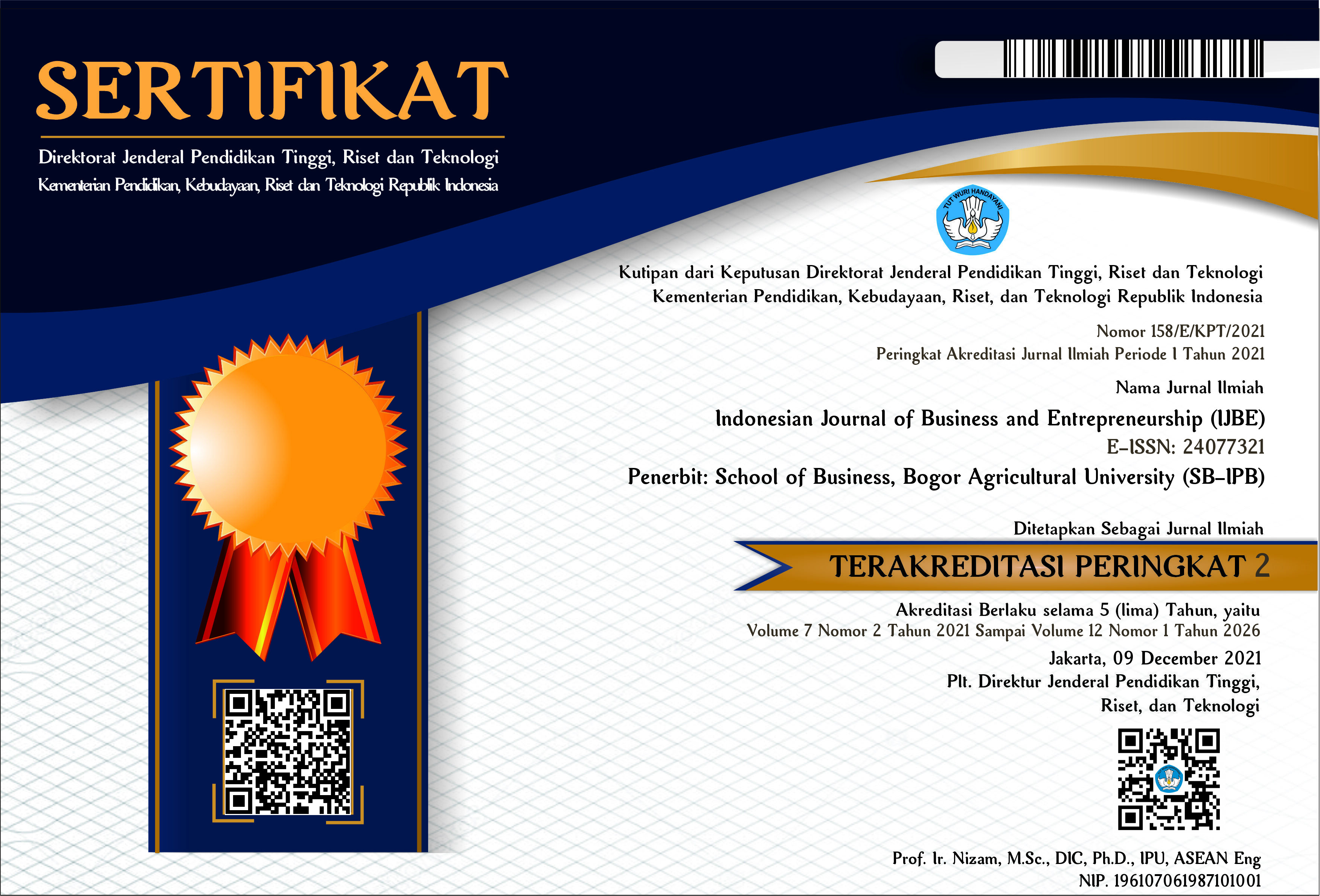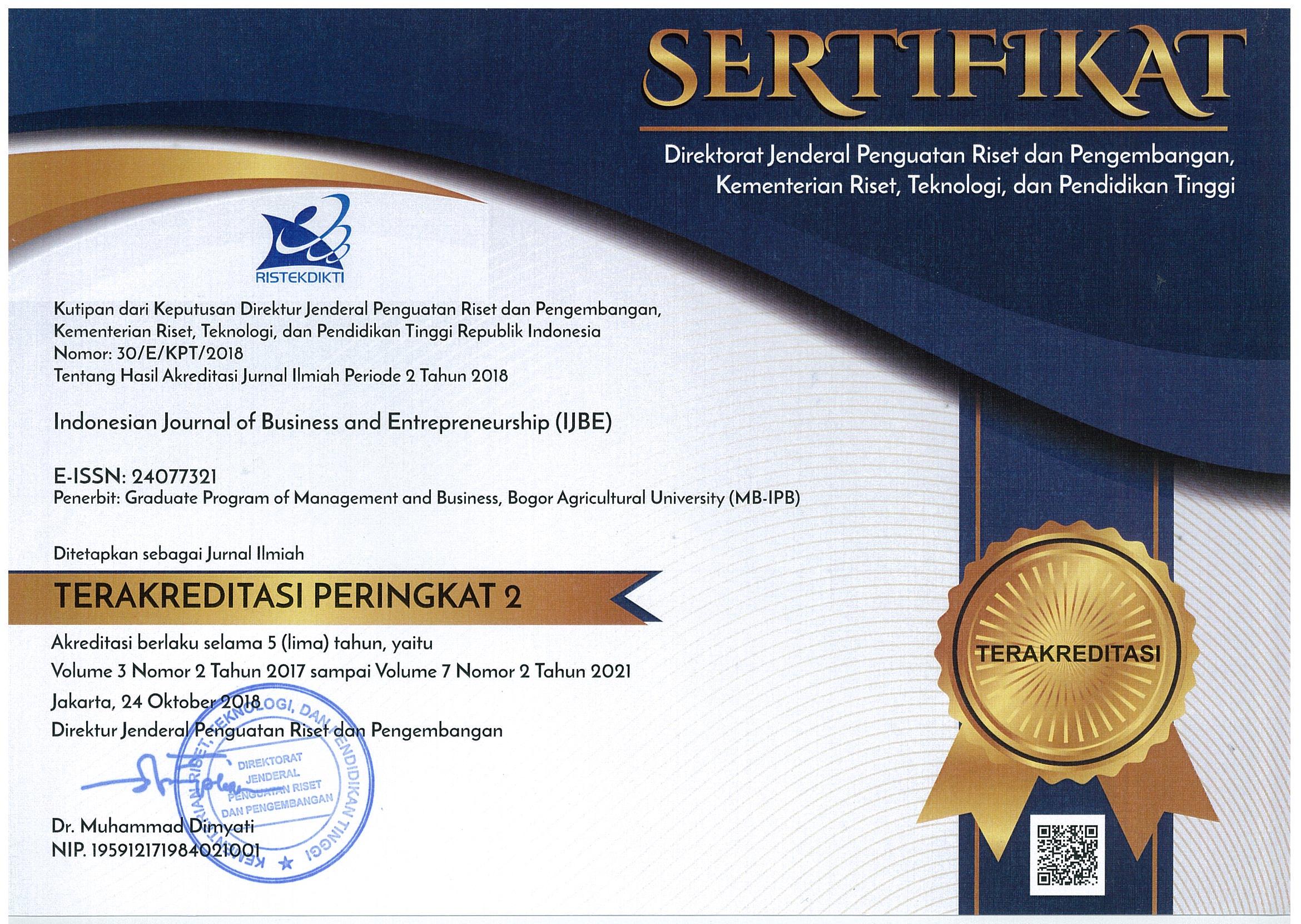An Entrepreneurship Education Model for Promoting Students’ Entrepreneurial Intentions: The Case of Indonesian Higher Education
Abstract
This study aimed to provide an understanding and evaluating the implementation of entrepreneurship education as a mandatory program in Indonesia. The study emphasizes the measurement of the effectiveness of different entrepreneurship education programs in higher education implementation, intracurricular and cocurricular programs. The study used the Theory of Planned Behavior (TPB) to measure students’ entrepreneurial intentions. The objects of the research were students who participated in the entrepreneurship programs. The study used quantitative approach and purposive sampling as the sampling technique. The survey resulted in 304 valid respondents from ten universities in Indonesia. The findings showed that intracurricular-based entrepreneurship education was unable to give a significant emphasis on students’ entrepreneurial intention. In contrast, cocurricular-based entrepreneurship education was able to give a significant emphasis on students’ entrepreneurial intention and emphasized on attitude as a single factor.
Keywords: entrepreneurship education, theory of planned behavior, intracurricular, cocurricular, entrepreneurial intention







